While others sleep, a PA news agency photographer goes out to capture the celestial light shows in his own little corner of heaven.
Owen Humphreys has been photographing some of the north of England’s most famous landmarks against the night sky since he discovered that he could see and capture the Northern Lights a mere five minutes from his front door in Whitley Bay.
The conditions have to be just right for a successful nocturnal outing for the news agency photographer, who takes working around the clock all too literally.
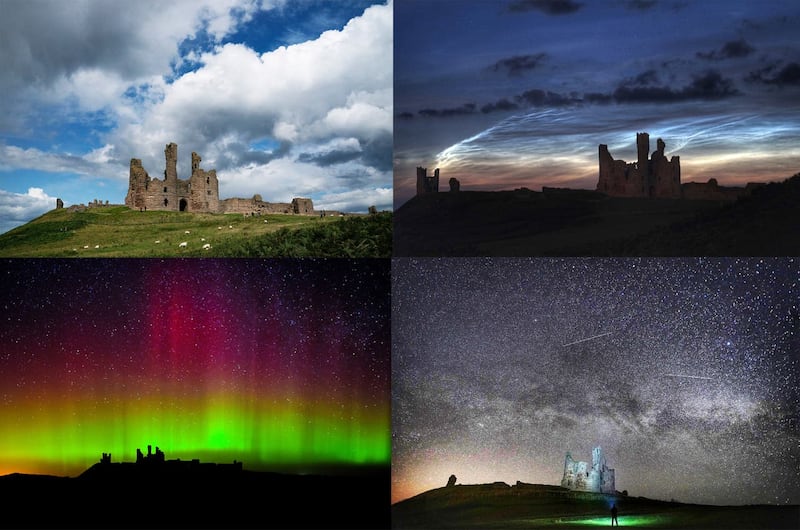
“For the Northern Lights you need no moon or as little as possible, especially in the UK,” said Humphreys.
“Then, very important, a clear sky. And then, even with those, you will need some kind of solar storm, such as a coronal mass injection from the sun, or in simple terms, an explosion from the sun’s surface which reacts with the earth’s magnetic field.”
“The Milky Way is probably the easiest.
“But you still have to do your homework on times and position in the sky, which can easily be done using apps.
“And again, of course, a photographer’s favourite thing at night – a clear sky. With the Milky Way, I prefer little or no moon to bring out the stars in the picture.”
Humphrey’s has also become something of a cloud expert.
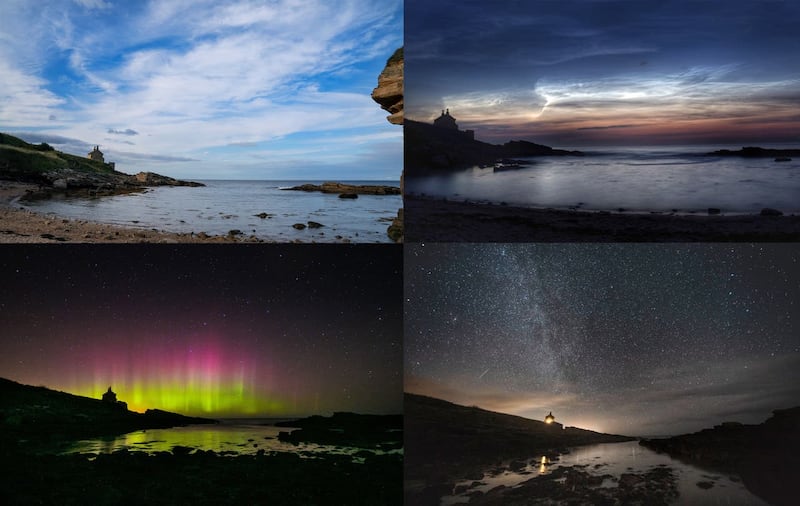
“The third element I’ve been photographing at night are known as noctilucent clouds (ice-clouds, or night clouds).
“These, to the eye, are bright white clouds on the horizon in the middle of the night and are the highest clouds in the Earth’s atmosphere, 83km (51.5 miles), and are observed slightly below the mesopause in the polar summertime.
“These clouds can be very bright and make some great shapes but you really do have to be a bit of a night owl to capture them.”
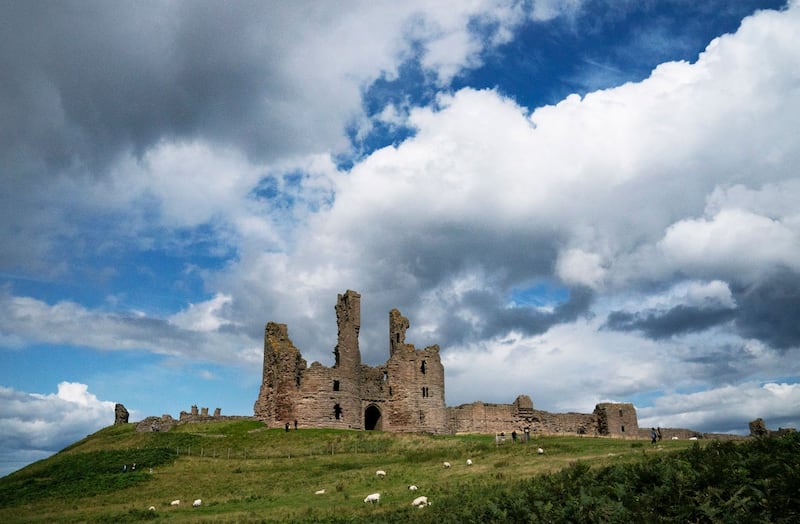
Humphreys is a purist when it comes to his pictures, saying: “I am still very old school when it comes to photography.
“For me it has to be a single image; no layering or stacking of images and little Photoshop or Lightroom.
“However, with astro photography most images need some kind of tweaking.
“What I don’t like is images that are not a single image unless stated in your caption or picture info. Otherwise I feel you are almost fooling the public.”
His favourite locations are:
– The tree at Sycamore Gap: Next to Hadrian’s Wall near Crag Lough and made famous by actor Kevin Costner when it appeared in his 1991 film Robin Hood: Prince Of Thieves. Known amongst photographers as The Gap.
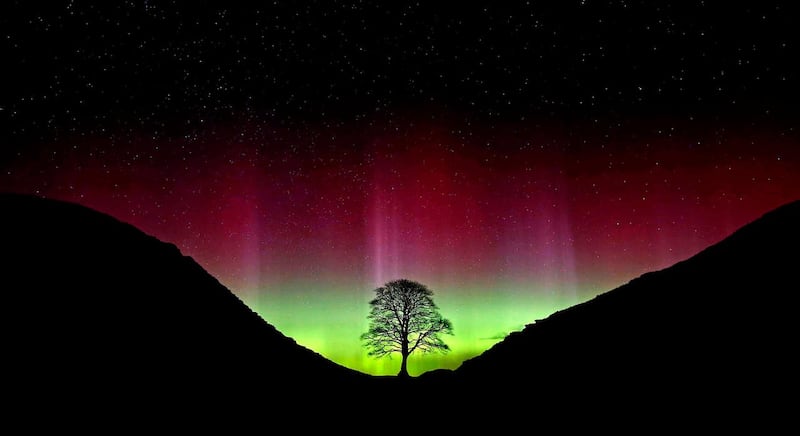
It is probably the most photographed tree in the country and the scene has featured in many award-winning pictures.
– Dunstanburgh Castle: The castle ruins sit high upon the coast looking over the North Sea with Bamburgh Castle to the north, making it an excellent dark-sky location for night and astro photography.
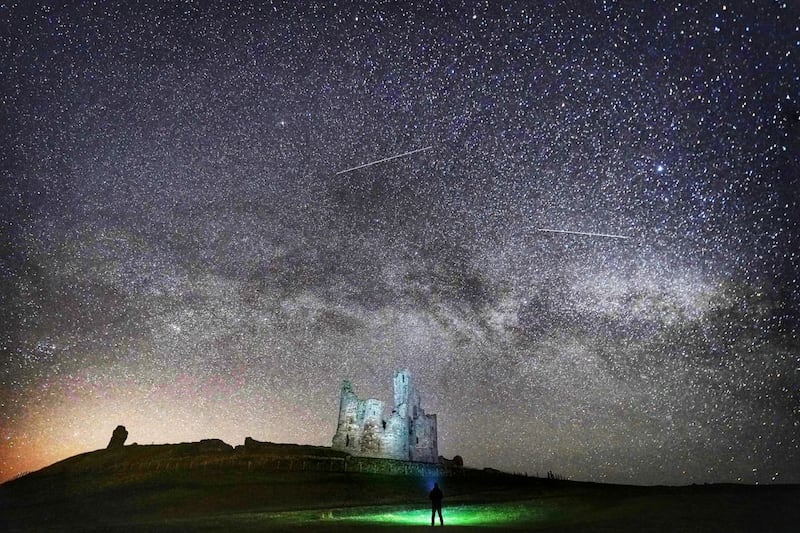
– The Bathing House at Howick: Just down the coast from Dunstanburgh Castle, it has a distinctive silhouette and was built in the early 19th century by the 2nd Earl Grey who was the prime minister responsible for the passing of the Great Reform Bill of 1832.
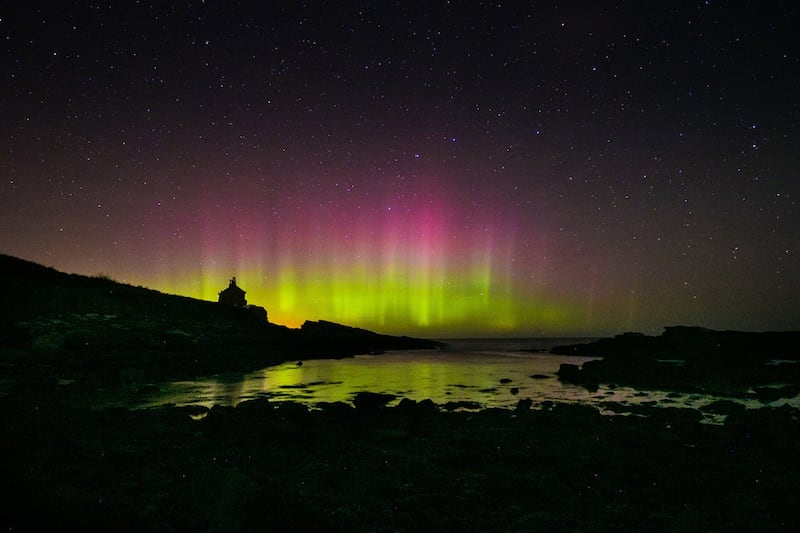
But taking the pictures has required immense patience.
Humphreys said: “Many, many hours have been spent standing in fields or on the coast, sometimes six to seven hours waiting to see if the Northern Lights appeared.
“And can I say that on very many occasions they simply didn’t, so that would go down as just a sleepless night with nothing to show apart from the tranquillity of being out in the peace of the night.”








